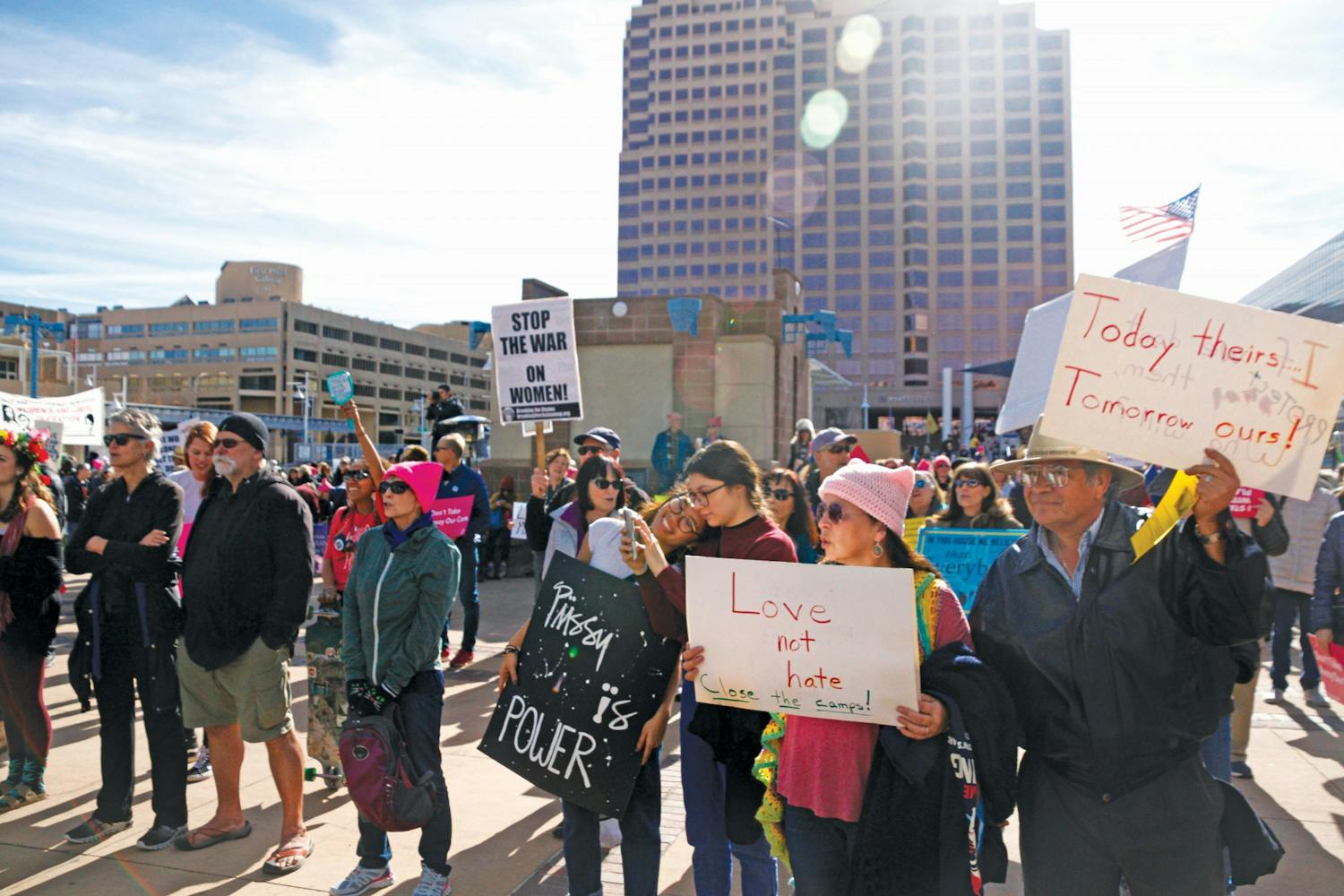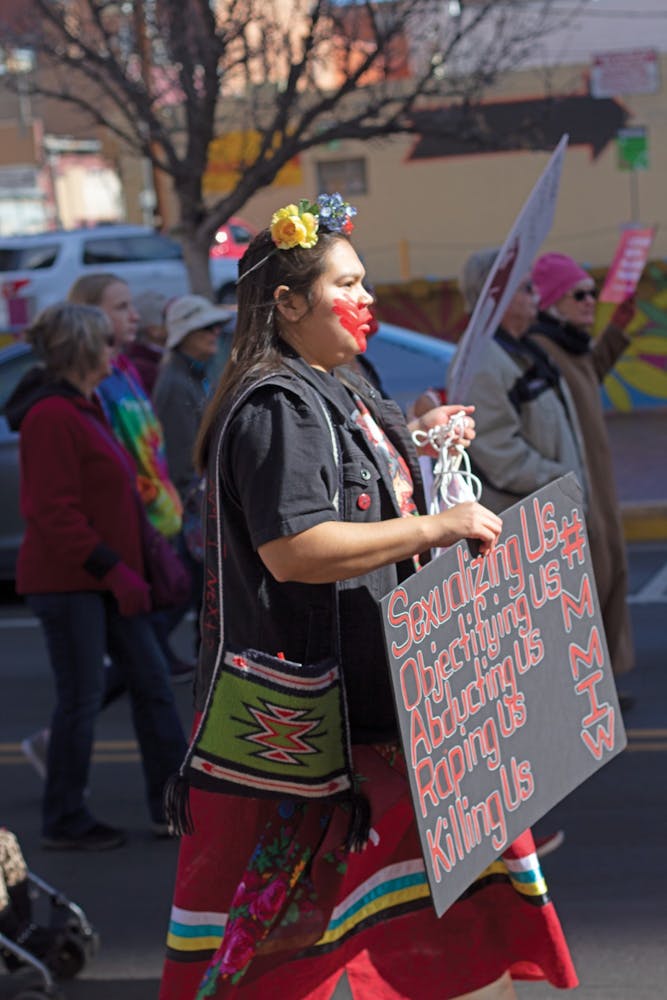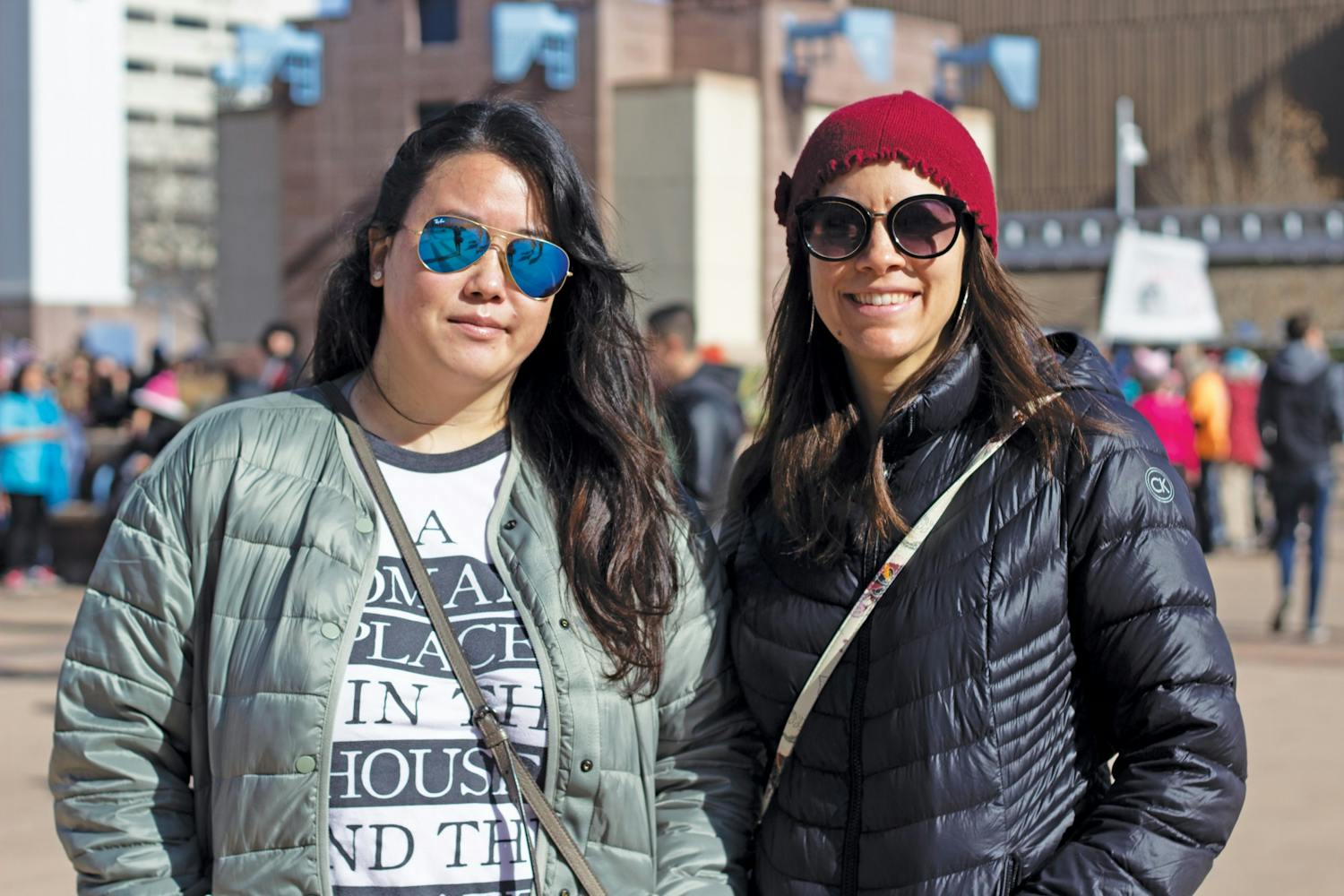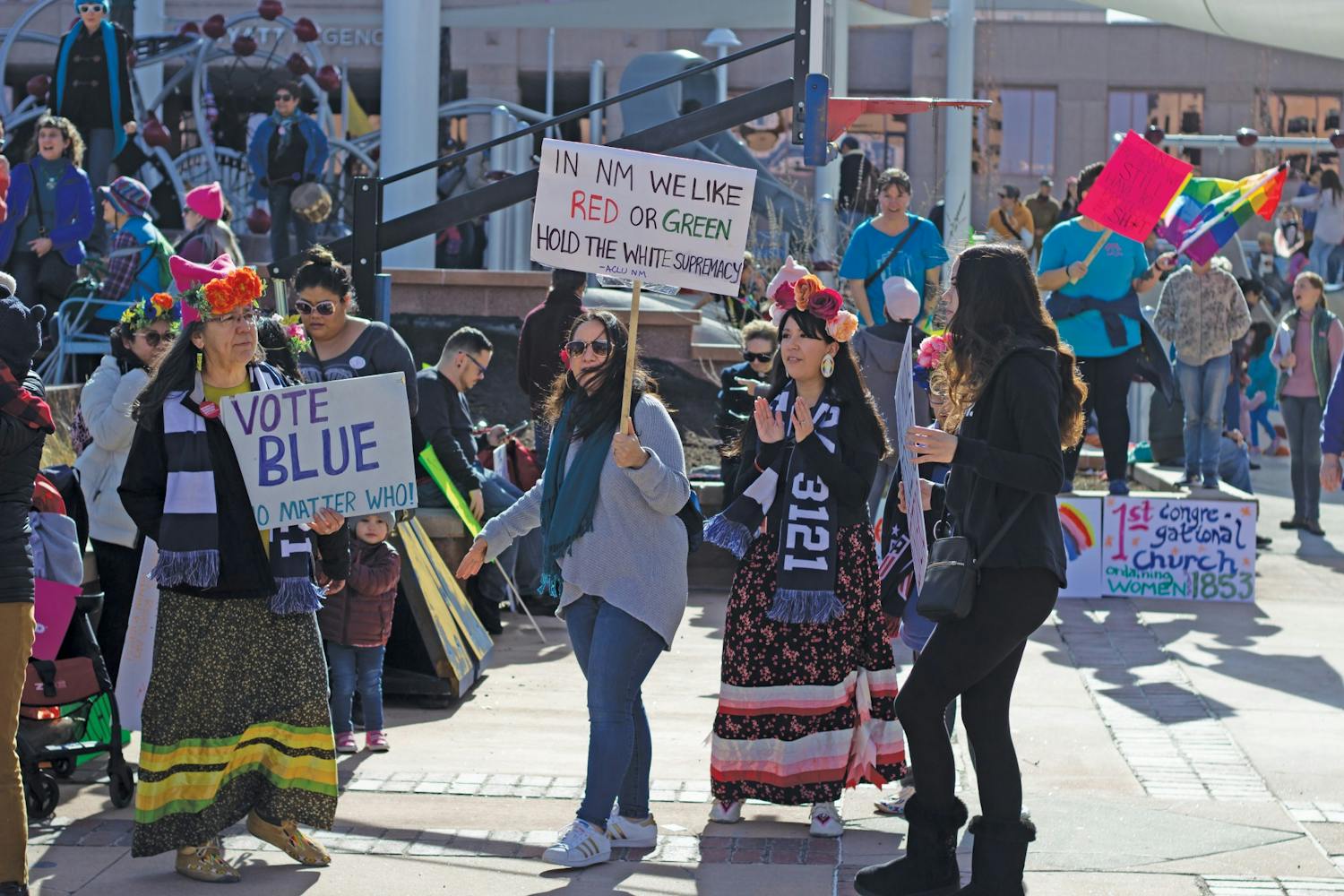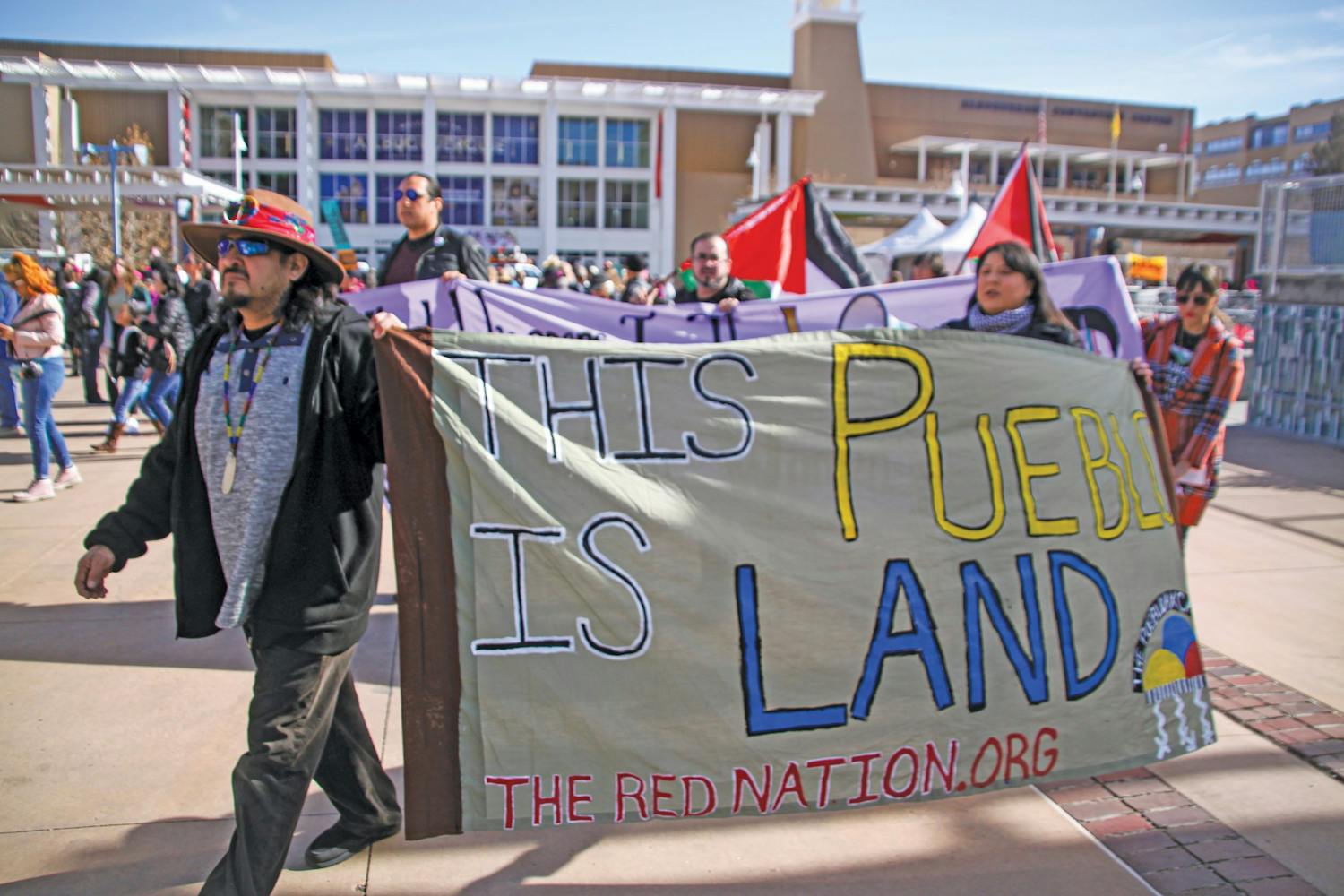A crowd gathered in Civic Plaza for the fourth iteration of the annual women’s march on Sunday, January 19.
Hoisting a variety of signs and shouting chants, the group paraded around the block and returned to the plaza where several performers and speakers were lined up for the afternoon, including U.S. representative Deb Haaland and first lady Elizabeth Kistin Keller. Some of the issues addressed by the protestors included reproductive rights, inequality for women, immigration, LGBTQ rights, Trump’s impeachment and racism.
Thomas Luebben, who owns a Native American law practice in Sandia Park, attended the march. He said that he was there to support the struggle for women’s equality, and felt that women’s financial opportunities were not equal to those of men.
“Testosterone is the most dangerous substance in the universe,” Luebben said. In his opinion, even going beyond equality to a female-dominated society would be preferable to patriarchy.
Another issue addressed at the event is the overwhelming prevalence of sexual assault victims. Caitlin Brandon and Jasmine Peratrovich, two women of Indigenous heritage who have themselves experienced sexual harassment, marched to bring awareness to the exploitation of American Indian women without appropriate justice. Between them, they held a string of white shirts marked with red handprints and the stories of other women who had been assaulted.
The event had a high attendance of both men and women of all ages. Vickie Cornejo of Albuquerque said that in some ways, it felt like they were in an “echo chamber” of people who thought and felt similar to one another.
While she expressed that she didn’t know if women of all views would feel accepted at an event like this, she did hope that they knew everyone was welcome.
Emille Domschot is a freelance photographer at the Daily Lobo. She can be reached at news@dailylobo.com or on Twitter @erdomschot


